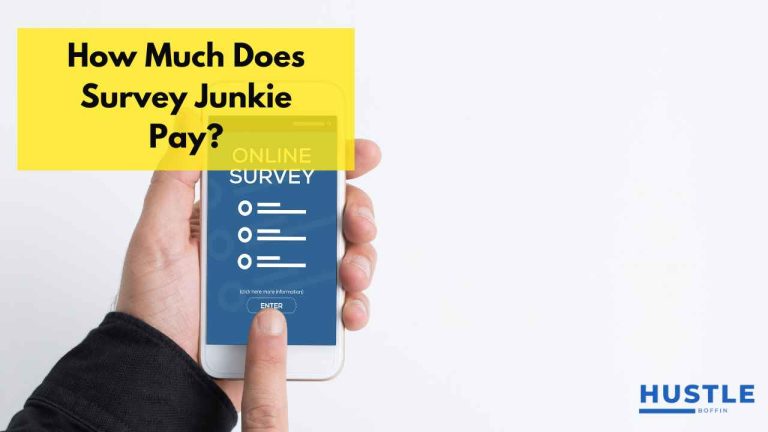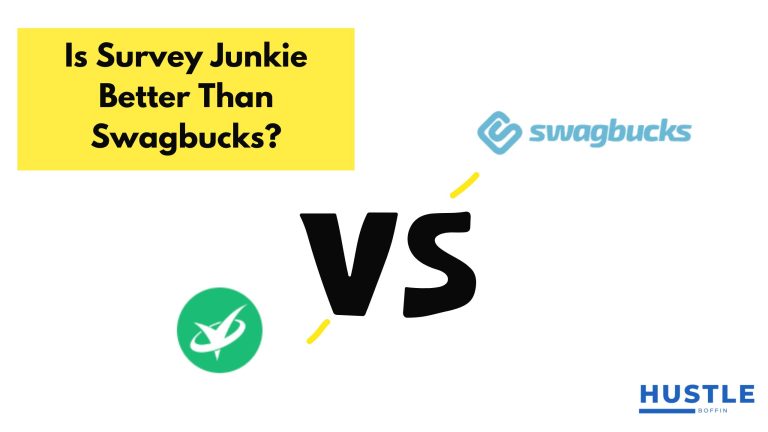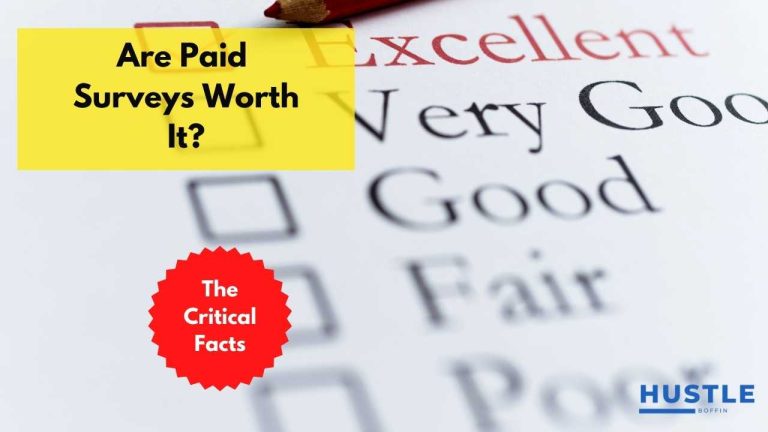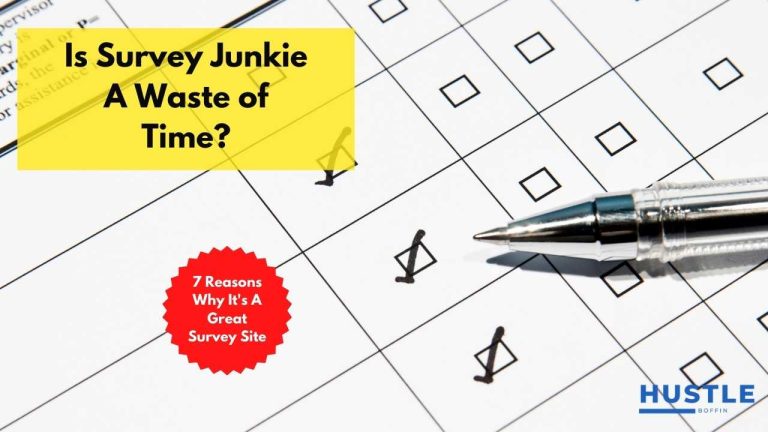Are Paid Surveys Real?: Here’s All You Need To Know
Paid surveys can represent a good way to make a little bit of extra income, especially if you have the time on your hands to devote to it.
There are plenty of legitimate businesses that operate surveys – they are a good way to conduct crucial market research.
But there are also plenty of bad actors online who are waiting to take advantage of individuals so you have to tread carefully when considering online surveys.
Are Paid Surveys Real?
Paid surveys are most certainly real but you need to tread carefully. Surveys are typically conducted by market research companies that they sell the data collected to brands and companies who use it to make decisions about how to market their products and services to their desired target audience.
When you viewed like this you can see why surveys could be valuable to brands and why they may offer incentives to companies conducting the surveys.
When you take part in a paid survey you join the value chain:-
- Brand X needs information about how consumers view a product category
- Brand X pays Brand Y (a survey company)
- Brand Y needs willing survey participants (You) and pays them a small fee to incentivise their effort
- Brand Y may go Company Z which regularly conducts market surveys and has a pool of ready-made participants
Though there are plenty of legitimate paid survey companies out there, you need to watch out for the scammers and criminals ready to take advantage of you.
Signs A Paid Survey May Be a Scam
There are some tell-tale signs that a paid survey may be a scam hiding in plain sight.
The Payout Looks Too Good To Be True
Surveys can pay well if done consistently and with lots of time but no one is going to get rich completing surveys. This is something you need to keep in mind.
If a site is offering $200 for a 15 minute survey, you know something is up. According to Zip Recruiter the average hourly pay for paid surveys in the United States is $25.95 per hour.
Always remember that when you are completing the sruvey you are part of a value chain – the company conducting the survey wants to make money off of the information you are providing so although they can offer you some of the reward, they have to keep enough to make the whole business profitable.
If the money being offered seems much higher than you have seen on other paid surveys, avoid it.
There’s No Company Name or Contact Details
If the survey site you are on has no company name or contact details then this is a simple red flag.
Though it is easy to impersonate a company or make up one, the complete lack of a company name is a good indicator of a potential bad actor.
A lack of contact details is another sure sign that the paid survey may be a front for a scam. You should be able to contact the company conducting the survey easily and they should make their contact details readily available.
If all they have is a contact form and nothing else then stay well away; it’s not worth the risk. Even if it’s not a scam, the fact they cannot even provide an easy way to make contact in case of a problem it’s not worth your precious time.
They’re Asking For Sensitive Information
When signing up for survey sites you will be asked for some level of information to help them ensure they provide you with surveys that fit the profile of their target audience.
However, if a survey site is asking for highly sensitive information then you need to be on your guard.
The Website Has No SSL
An SSL (Secure Socket Layer) is an internet security standard that provides protection and encryption for your data as you interact with a website.
You will know an SSL is present as the website address will have HTTPS at the beginning and/or a padlock symbol next to the web address.
You often find scam websites do not bother with implementing an SSL. It is not a complicated process to implement nor is it costly but it is a very good indicator of how seriously a website operator takes their operation and the security of its users.
The presence of an SSL is not a guarantee of a legitimate survey site but the absence of one is a good indicator to be on your guard. As a general rule it’s best not to use any website without an SSL.
No Sign Of A Privacy Policy or Terms of Service
Scammers will put as little effort in as humanly possible to get what they want. You may also find they have multiple websites where they are running scams so will attempt to make life as easy as possible. One area they may skip is a privacy policy or terms and conditions of use for their website.
If you cannot see a privacy policy that defines how your information will be used do not provide any.
Similarly if there is no terms of service for the website then beware; it may be
They Ask You For Money
If the survey site asks you for any kind of fee for participating in any of their surveys close the page and forget about it. This is a real red flag for a scam site.
Legitimate survey companies do not need or want to take money from their participants; the money should flow one way – from the survey company to you.
Payment Details Are Vague or Non-Present
The last thing you want is to spend hours completing surveys only to not get paid a penny. Make sure that the payment details are clearly displayed on the website and you are comfortable with how payment will be made.
Also try to see if the payout threshold is reasonable given the typical reward. Some sites will payout for as little as $5 of rewards. If a site is asking for a $200 minimum for a payout then beware as they may never intend for you to take any out.
How To Stay Safe Completing Paid Surveys
There are a few things you can do to make sure that you stay safe when completing online surveys.
Check Reviews
Like any service survey websites are often reviewed on sites like TrustPilot and Google. In fact the most legititmate sites will likely be proud of their reviews and display them somewhere on their site.
Be sure to look up their reviews and if there are any consistent complaints from users then best to avoid it.
Sometimes even though a site may not be a straight up scam, they may still prove difficult to get payment from.
Guard Your Sensitive Information
Be careful with the information you give out when completing surveys and never give out more details than you are comfortable sharing.
If it’s not something you’d be comfortable others knowing about you, do not disclose it.
Conclusion: Are Paid Surveys Real?
So, are paid surveys real? They most certainly are real however, you have to be super-cautious when engaging in paid surveys as there are plenty of bad actors waiting to steal your information and in some cases money.
Never give out highly sensitive information. Be on the lookout for red flags such as a lack of contact information and promises of quick riches.
Despite the dangers, paid surveys can be a good way to supplement your income if you have the time and are prepared to put in the hours.





